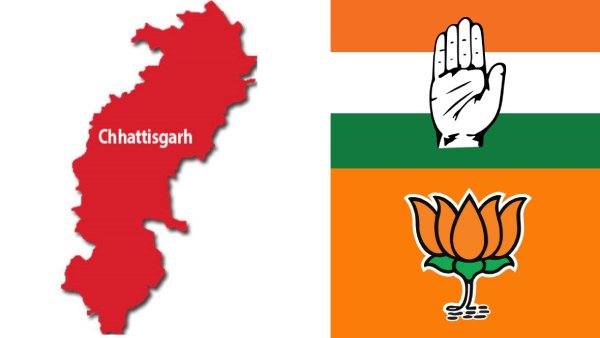In a startling turn of events, a recent report by a vigilant poll watchdog has brought to light a series of shocking criminal cases involving candidates in the upcoming Chhattisgarh elections. The poll revelation casts a shadow over the political landscape, raising concerns about the ethical standards of those vying for public office.
Defining the Landscape of poll watchdog
A poll watchdog report in the electoral context signifies a meticulous analysis conducted by an autonomous entity, often focused on surveilling and ensuring the openness of the electoral apparatus. In this instance, the Chhattisgarh Election Watch and ADR have meticulously examined the self-sworn affidavits of candidates, revealing those with a shadow of criminality.
Key Revelations of poll
According to poll watchdog, among the 953 contenders in the second phase of the Chhattisgarh Assembly elections, approximately 10%—a hundred individuals—bear the weight of criminal allegations. The Chhattisgarh Election Watch and ADR conducted a thorough examination of self-sworn affidavits to unravel these disconcerting findings.
The Scale of the Predicament:
The disclosure that 10% of second-phase candidates carry the baggage of criminal accusations is nothing short of alarming. It raises profound concerns about the potential impact these individuals might exert on the political landscape and the democratic process itself.
Insights from the ADR Report:
The ADR report accentuates several critical facets:
- Grave Allegations: Among the 100 candidates entangled in criminal cases, 56 confront severe charges, spanning a spectrum of transgressions capable of significantly tarnishing their suitability for public office.
- Ramifications of Fielding Such Candidates: Permitting candidates with criminal backgrounds to participate in elections wreaks havoc on the democratic framework. It erodes the bedrock principles of transparency, accountability, and public faith in the electoral system. Voters, in such a scenario, are compelled to choose from a pool of candidates whose ethical standards remain dubious, thus compromising the sanctity of the democratic process.
- Party Affiliations Unveiled: The report meticulously delves into the party affiliations of candidates mired in criminal allegations, revealing that the Bharatiya Janata Party (BJP) claims the undesirable top spot. Thirteen out of the 90 BJP candidates admit to criminal charges, closely trailed by the Indian National Congress (INC), with 10 out of its 90 candidates carrying the stain of criminal records. This underscores the urgent necessity for political entities to introspect and revamp their candidate selection protocols in election poll.
Legal Safeguards in Place:
1. Representation of the People Act, 1951:
This legislative framework outlines the qualifications and disqualifications for parliamentary and state legislature membership. Section 8, in particular, disqualifies individuals convicted of specific offenses from participating in elections.
2. Disqualification on Conviction:
The Representation of the People Act, 1951, bars individuals convicted of offenses and sentenced to imprisonment from contesting elections. However, the efficacy of this provision remains a subject of contention due to legal delays and candidates securing stay orders on their convictions.
3. Conduct of Elections Rules, 1961:
These regulations mandate candidates to disclose any pending criminal cases in their affidavits during the nomination process.
While existing laws disqualify individuals convicted of certain offenses, their effectiveness remains questionable due to legal loopholes and protracted judicial processes allowing those with pending cases to participate in elections.
4. Proposed Electoral Reforms:
To comprehensively address this predicament, imperative electoral reforms are in order. Rigorous screening procedures, heightened scrutiny of candidates’ backgrounds, and swift resolution of pending criminal cases stand as crucial steps. Furthermore, establishing a more robust mechanism to disqualify individuals facing severe criminal charges from contesting elections is of paramount importance.
5. Fast-Track Judicial Redressal:
Establishing expedited adjudication through fast-track courts can forestall candidates from exploiting legal delays.
6. Stringent Scrutiny:
Reinforcing the candidate nomination scrutiny process, ensuring exhaustive background checks, and mandating the disclosure of all pending criminal cases.
7. Public Awareness Initiatives:
Empowering citizens through public awareness campaigns that illuminate the criminal records of candidates, enabling informed electoral choices.
8. Party Accountability Measures:
Political entities should internalize mechanisms for thorough candidate background scrutiny and be answerable for the individuals they field.
9. Legal Overhaul:
Contemplating enhancements to existing laws and introducing novel legislation to disqualify individuals confronting serious criminal charges from participating in elections. Robust legal deterrents can dissuade candidates with tainted backgrounds.
Alternate Remedies
1. Political Resolve:
Political parties must unequivocally refrain from fielding candidates with criminal histories, emphasizing ethical leadership.
2. Civil Society Engagement:
Increased involvement of civil society organizations in electoral monitoring can serve as a deterrent against malfeasance.
3. Ethical Standards for Political Entities:
Political parties should adopt and adhere to ethical standards that prioritize candidates with unblemished records and a history of public service and integrity.
4. Independent Oversight:
The establishment of an autonomous oversight body to monitor and enforce ethical conduct in elections can contribute to fairer and more transparent electoral processes.
5. Whistleblower Protection:
Robust measures to shield whistleblowers can encourage the disclosure of crucial information about a candidate’s criminal activities without fear of reprisal.
Navigating a Crossroads in Chhattisgarh Politics
The poll report’s revelations mark a pivotal moment in the lead-up to the Chhattisgarh elections. It challenges the conventional narrative of political campaigns, urging voters to look beyond mere promises and scrutinize the character of those seeking their votes. The consequences of these findings extend beyond the current electoral cycle, prompting a reevaluation of the mechanisms in place to ensure the accountability and suitability of political candidates.
As Chhattisgarh poll watchdog stands at the crossroads of democracy, the electorate faces a critical choice – to endorse candidates with questionable backgrounds or to demand a higher standard of integrity in the pursuit of a more transparent and accountable political landscape.















